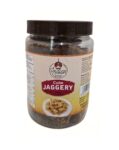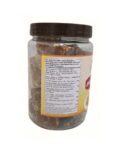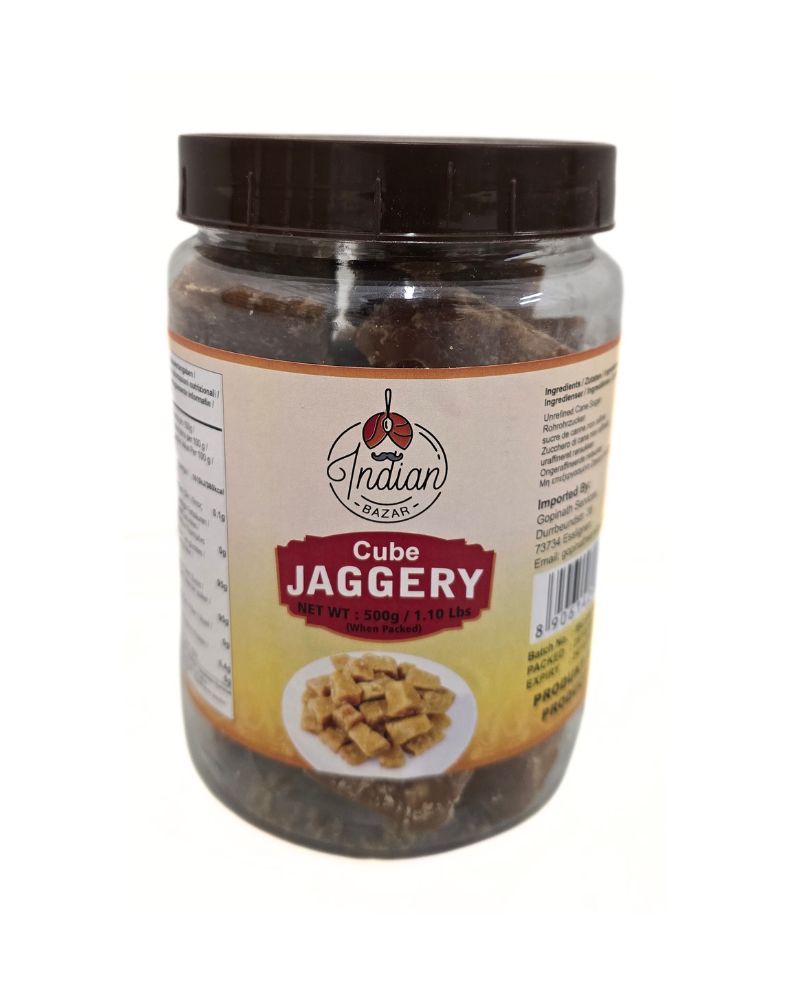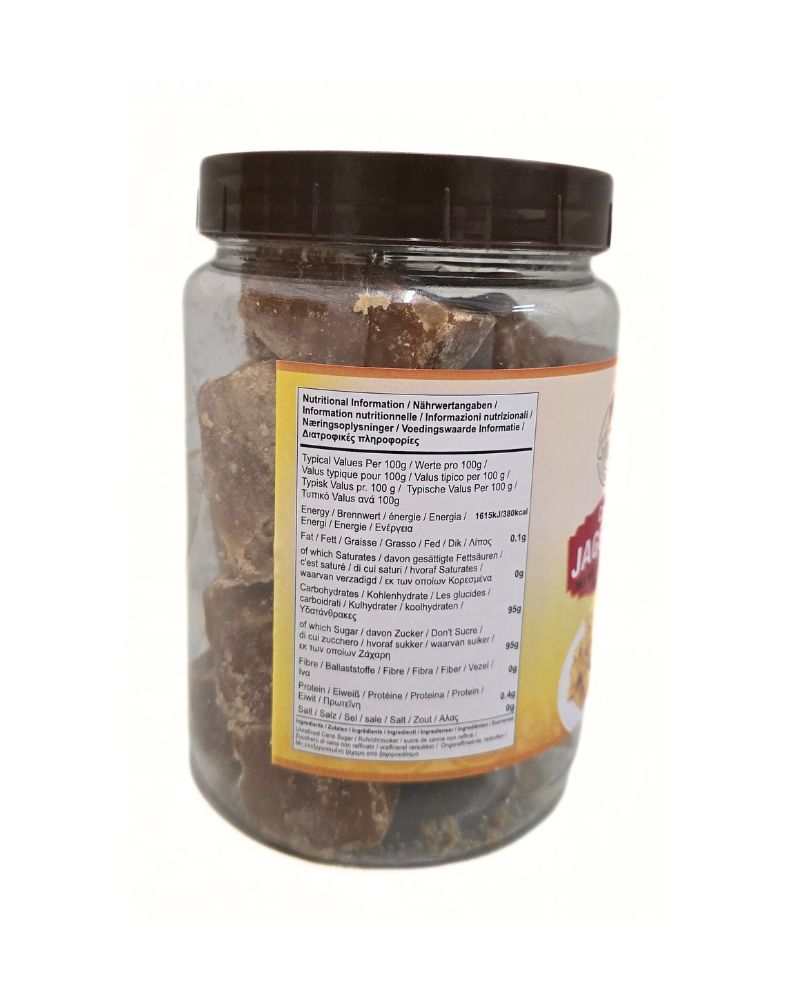

Indian Bazaar Jaggery (Gud)
Price range: € 2,49 through € 4,99
Savor the natural sweetness of our premium Jaggery. Made from pure cane sugar, this unrefined sweetener is rich in vitamins and minerals, offering a wholesome alternative to refined sugar. Perfect for enhancing your tea, desserts, and traditional dishes with a rich, caramel-like flavor. Experience the authentic taste and health benefits of Jaggery in every bite!
Jaggery, known as “gur” in Hindi, is a traditional unrefined sugar made from sugarcane juice or palm sap. Unlike refined sugar, which is predominantly sucrose, jaggery retains molasses, contributing to its distinct flavor and higher nutritional value.
1. Production Process:
- Extraction: The process begins with the extraction of juice from sugarcane or the sap from palm trees (such as date palm or coconut palm).
- Clarification: The extracted juice is then filtered to remove any impurities.
- Boiling: The juice is boiled in large, shallow pans. As it heats, it thickens and begins to concentrate, while impurities are skimmed off the surface.
- Cooling and Solidifying: Once the juice reaches a thick, syrupy consistency, it is poured into molds or spread on flat surfaces to cool and solidify into blocks or cakes of jaggery.
2. Varieties:
- Sugarcane Jaggery: Made from sugarcane juice, it is the most common type, available in shades ranging from golden brown to dark brown.
- Palm Jaggery: Made from the sap of palm trees, it can have a deeper color and a more complex flavor. Types include date palm jaggery and coconut palm jaggery.
3. Nutritional Profile:
- Macronutrients: Jaggery contains carbohydrates, mostly in the form of sucrose and a small amount of fiber.
- Micronutrients: It is rich in essential minerals like iron, magnesium, potassium, and calcium, which are retained from the molasses.
- Vitamins: It contains small amounts of B vitamins and antioxidants.
4. Health Benefits:
- Iron Content: Jaggery is a good source of iron, which helps in combating anemia and maintaining healthy blood hemoglobin levels.
- Digestive Health: It is believed to aid in digestion and can act as a natural laxative.
- Detoxification: Jaggery is known for its detoxifying properties, helping to cleanse the liver and flush out toxins from the body.
- Energy Boost: Unlike refined sugar, jaggery provides a slow release of energy, helping to maintain stamina and prevent fatigue.
5. Culinary Uses:
- Sweetening Agent: Jaggery is used as a natural sweetener in various traditional sweets, desserts, and beverages.
- Cooking Ingredient: It is used in many savory dishes to balance flavors, such as in lentil stews, curries, and chutneys.
- Traditional Sweets: Popular jaggery-based sweets include chikki (brittle), ladoos, payasam, and jaggery cakes.
- Beverages: It is used in preparing traditional drinks like jaggery tea, coffee, and refreshing summer drinks like “panna.”
6. Cultural Significance:
- Festivals and Rituals: Jaggery holds cultural importance in many South Asian festivals and rituals. It is often offered to deities and used in festive foods.
- Symbolism: In many cultures, jaggery symbolizes prosperity and good health.
7. Storage:
- Storage: Jaggery should be stored in a cool, dry place, preferably in an airtight container to prevent it from hardening and to keep away pests.
In summary, jaggery is a traditional, unrefined sweetener known for its rich flavor, nutritional benefits, and versatility in culinary applications. Its production process retains essential minerals and vitamins, making it a healthier alternative to refined sugar. Widely used in South Asian cuisine and culture, jaggery continues to be a significant ingredient in both everyday cooking and festive celebrations
Additional information
| Weight | 500 gms, 1 kg |
|---|



